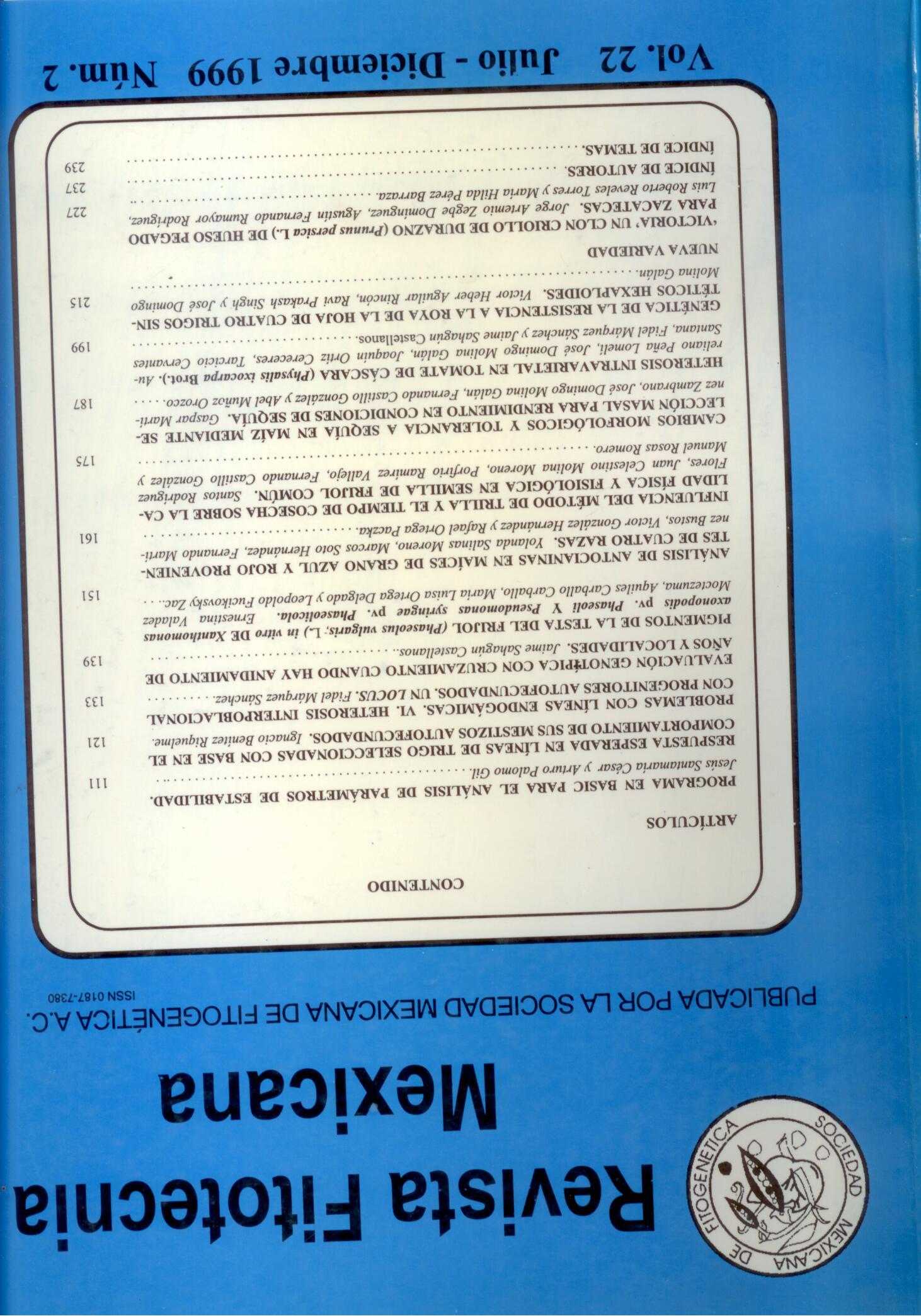EXPECTED RESPONSE IN WHEAT SELECTED LINES BASED ON PERFORMANCE OF SELFED TOPCROSS PROGENIES
Main Article Content
Abstract
One of the breeding strategies of improving yield potential in autogamous crops is the recurrent recycling of early generation lines. Usually, in every recycle stage, line selection is based on per se performance, instead of its general combining ability (GCA) because the F1 seed produced is normally insufficient to evaluate the F1 testcross (TC). In this study, the yearly expected genetic gain is derived for the case in which the evaluation units are F2 progenies (STC) of every TC integrated for four testers mated to selfed lines from panmictic populations, and the advance is compared with the TC expected genetic gain across a range of initial allelic frequencies (p) and degrees of dominance (h). The STC instead of TC procedure, did not affect the genetic ranking of TC means and variances of the four testers; STC procedure only reduced the magnitude of means and variances. As a consequence of the positive genotypic value of the heterozygous, the best tester was the one with small GCA value or Iow favorable genes frequency. The STC procedure did not produce the yearly highest response; however, in wheat (Triticum aestivum L.) populations, STC reduced hand pollinations to one for each selfed testcross obtained. The highest yearly recuperated response within lines, in STC case, was in S2 lines.

